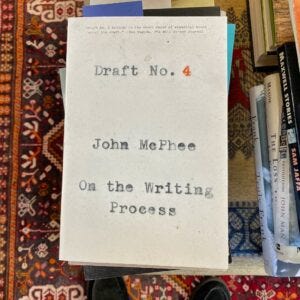Tuesday 28 March, 2023
Stepping stones
A section of the ‘limestone pavement’ of the Burren in Co Clare. Seen from a distance the karst landscape looks completely barren (“like a moonscape” someone once said). Yet close up it’s anything but. In fact, Wikipedia says, the region is renowned for its remarkable assemblage of plants and animals, and over 70% of Ireland’s species of flowers are found there. The Burren supports Arctic–alpine and Mediterranean Basin plants side-by-side, due to the unusual environment, as well as many rare Irish species, some of which are only found in this area. When you look more closely, you see that many of the grikes — the crevices between the limestone slabs — basically provide micro-climates in which such exotica thrive.
We spent a lovely day there on our last trip to Ireland.
Quote of the Day
”Interpretation is the revenge of the intellect upon art.”
Susan Sontag
Musical alternative to the morning’s radio news
Bach | Concerto for 2 Violins Strings | BWV 1043: II. Adagio
Chosen because the sun was shining when I was listening to it.
Long Read of the Day
On Writing
Wonderful reflective essay by Helen Lewis on the difficult thing that many of us do for a living.
Notice what you notice. John Lloyd, the great comedy producer, once said to me that the best comedians use the audience as an editor: the audience are the experts: they know what’s funny. Something similar is true of journalism: you are a human being encountering the world, and if you find something interesting, the chances are, so will other people. If you find your brow furrowing, don’t be afraid to ask the question that just popped into your head.
The main reason people don’t do this is that they want to seem cool, or knowledgeable, in front of their interviewees. They don’t want to risk asking a stupid questions. Always ask the stupid question. Not least because if you don’t, you might come back, write up your piece and face an editor going, “so what did she mean by saying she lost her virginity to a goat?”
Read on. It’s lovely. And the best thing I’ve read on the subject since John McFee’s book.
Helen sometimes reminds me of Joan Didion.
Yes, it’s crazy to have TikTok on official phones. But it’s not good for any of us
My OpEd piece in Sunday’s Observer.
As of this moment, government officials in 11 countries are forbidden to run TikTok on their government-issued phones. The countries include the US, Canada, Denmark, Belgium, the UK, New Zealand, Norway, France, the Netherlands and Poland. In addition, European Commission and European parliament staff were required to delete the app. This raises two questions.
First, why were politicians and senior officials in democracies scrolling like zombies through dance crazes, daft pet videos, feeling “bonita” and things you can do with smudged lipstick?
And second, what took these governments so long?
Do read the whole thing
My commonplace booklet
“Excitement” contd.
From the Humanist daily newsletter, which is an endless source of joy to those of us who like that sort of thing (to quote Miss Jean Brodie on the subject of chemistry). There’s been an interesting thread running on the newsletter about the tendency of ostensibly mature scholars regularly to announce (usually on Twitter) how “excited” or even “delighted” they are to be giving a paper at some dreary academic conference or other. (It is, of course, just virtue-signalling on steroids.)
From: Christian-Emil Smith Ore
Subject: Re: [Humanist] 36.478: excitement everywhere all the time, but no OscarAnd also synchronic cultural differences. In USA superlative and adverbs like fantastic are more frequent than in Nordic languages. Many years ago the Swedish lexicographer Martin Gjellerstam analysed a corpus of trivial literature (novels) and accidentally observed that the novels translated from English (US) had a much higher frequency of the word ‘gud’ (God) than the rest and definitely higher than the average of Swedish texts.





